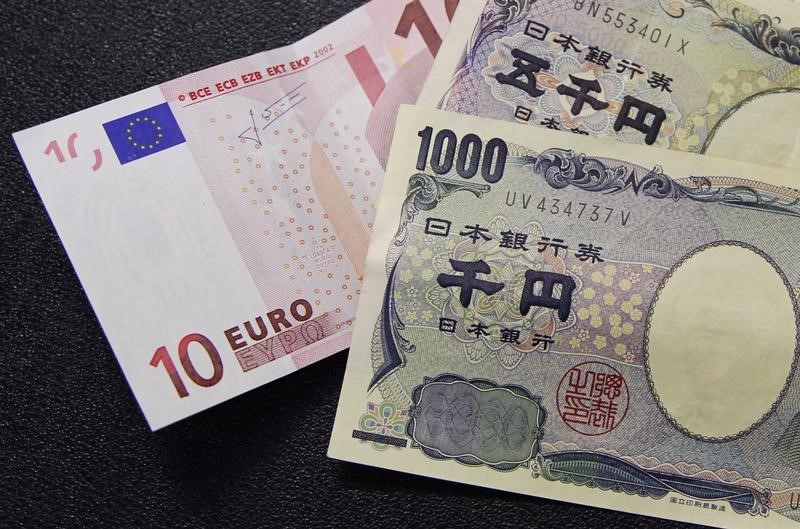* Yen hits 2-1/2 year high vs euro as oil, stocks slip
* ECB's Constancio says central bank not committing to March move
* Aussie hit by comments from RBA's Edwards (Updates prices; adds analyst comment; ECB's Constancio's remarks; changes byline, dateline, previous LONDON)
By Gertrude Chavez-Dreyfuss
NEW YORK, Feb 19 (Reuters) - The yen rose against the euro and dollar on Friday after yet another downbeat session for oil prices and stock markets worldwide, underscoring worries about global growth.
The dollar, however, gained overall after higher than-expected U.S. inflation data for January helped keep interest rate hikes by the Federal Reserve a possibility this year. U.S. data this week has been generally positive, with the dollar index .DXY on track for its best weekly performance in about three months.
The index was last little changed at 96.97.
But the focus remained squarely on the oil and equities, two assets that have struggled this year.
"Concerns about global growth returned after a couple-day hiatus, weighing on risky stocks and oil to the benefit of safer destinations like the yen," said Joe Manimbo, senior market analyst at Western Union Business Solutions in Washington.
The yen has been the chief beneficiary on currency markets during the worst start of a year for stocks since 2009. The Japanese currency hit a 2-1/2 year high against the euro, which was last down 0.4 percent at 125.26 yen EURJPY= .
Against the dollar, the yen rose to a one-week high. The dollar last traded at 112.91 yen, down 0.3 percent JPY= .
The euro, on the other hand, slipped against the dollar, trading down 0.1 percent at $1.1096. It was on pace for its worst weekly loss since early November.
Thursday's minutes of the European Central Bank's January meeting had the market again looking for more weakness in the euro against the dollar ahead of a March meeting now widely expected to deliver further policy easing. minutes cemented expectations for stronger stimulus next month, growth-positive measures that are euro-negative as they aim to lower lending rates, harming the single currency's appeal," said Western Union's Manimbo.
ECB Vice President Vitor Constancio said at a Reuters Newsmaker event on Friday, however, that the central bank had not yet committed to any decision for its next meeting on March 10 but might act if it determines a recovery in inflation is getting pushed back further into the future. other currencies, the Aussie dollar fell more than 1 percent to US$0.7074 AUD= , hurt by suggestions by central bank board member John Edwards in the Wall Street Journal that the currency was too strong for the bank's liking.
